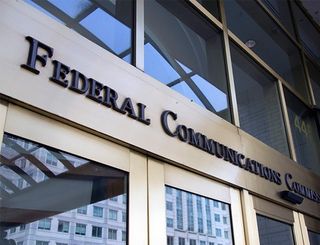FCC's Spectrum Auction Starts May 31

Tuesday is the first day in what will ultimately be another digital transition for broadcasters.
At 10 a.m. May 31, the FCC will begin its first-ever two-sided spectrum auction, with the first side (reverse auction) being broadcasters bidding to give up spectrum to be re-auctioned once the reverse auction is complete.
The first day will consist of one six-hour round, followed by one four-hour round Wednesday (June 1). The auction then transitions to two rounds per day of two hours apiece at 10 a.m. and 3 p.m.
"Big Day in TV" emailed one longtime executive who helped shape the auction framework for stations interested in getting in on the action.
The FCC has set an initial clearing target of 126 MHz, which is actually 100 MHz of spectrum plus what is needed for guard bands between channels to prevent interference between broadcasters and the wireless companies bidding on the freed-up spectrum.
If the FCC is able to clear that 126 MHz and get enough money in the forward portion of the auction to cover its payout to broadcasters, the auction is over. If not, it must move to its next lowest clearing target (114 MHz) and resume the reverse auction from where it ended, now needing less spectrum and less forward auction money.
Financial analyst Marci Ryvicker estimates it will be close, with the FCC needing to get $37 billion from forward auction participants to cover the 126 MHz and estimating that at the high end ($28 billion to $37 billion) of what the FCC can expect.
Broadcasting & Cable Newsletter
The smarter way to stay on top of broadcasting and cable industry. Sign up below
But just how much the FCC will have to get in the forward auction depends on how far broadcasters are willing to drop from their initial opening bid prices.
The auction, both forward and reverse, is expected to take several months. FCC chairman Tom Wheeler has signaled to Congress it could extend past October. It will all depend on the price at which broadcasters are willing to give up spectrum and whether forward auction bidders will pay enough to cover it.
Contributing editor John Eggerton has been an editor and/or writer on media regulation, legislation and policy for over four decades, including covering the FCC, FTC, Congress, the major media trade associations, and the federal courts. In addition to Multichannel News and Broadcasting + Cable, his work has appeared in Radio World, TV Technology, TV Fax, This Week in Consumer Electronics, Variety and the Encyclopedia Britannica.

